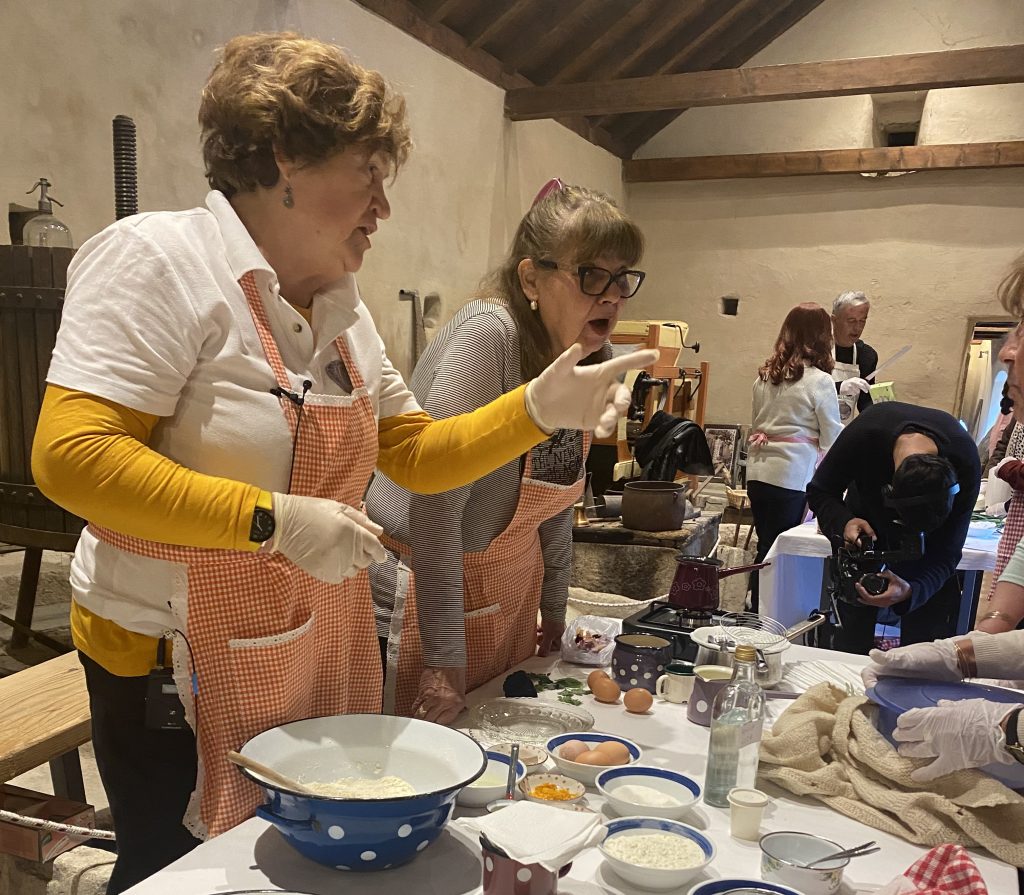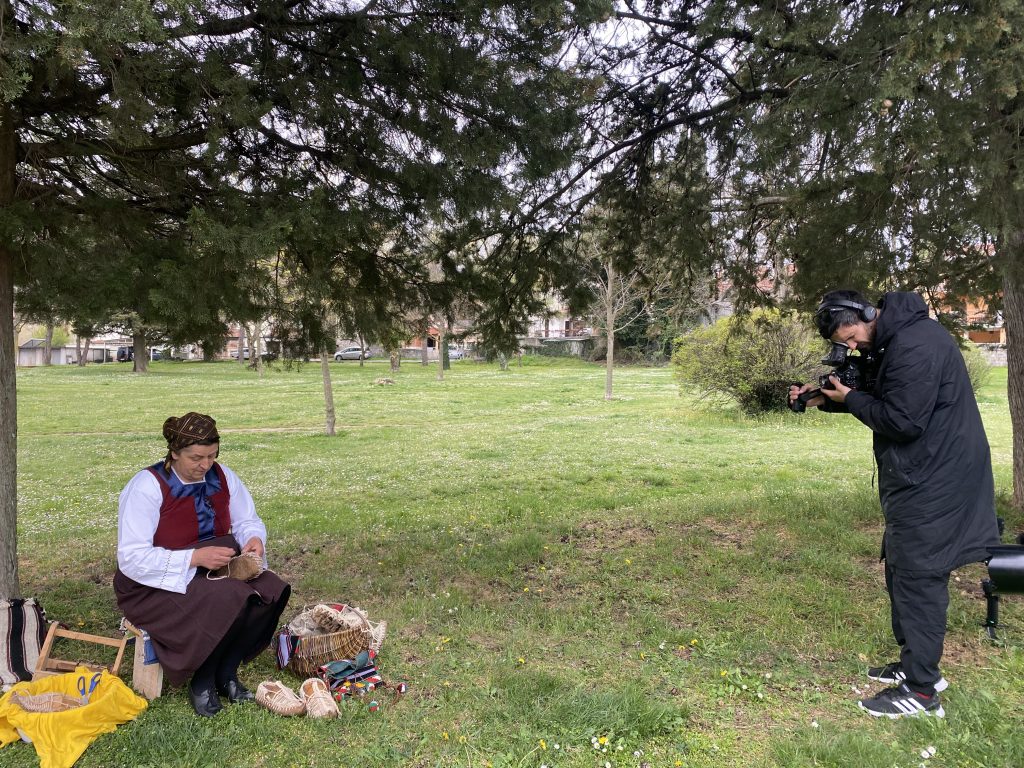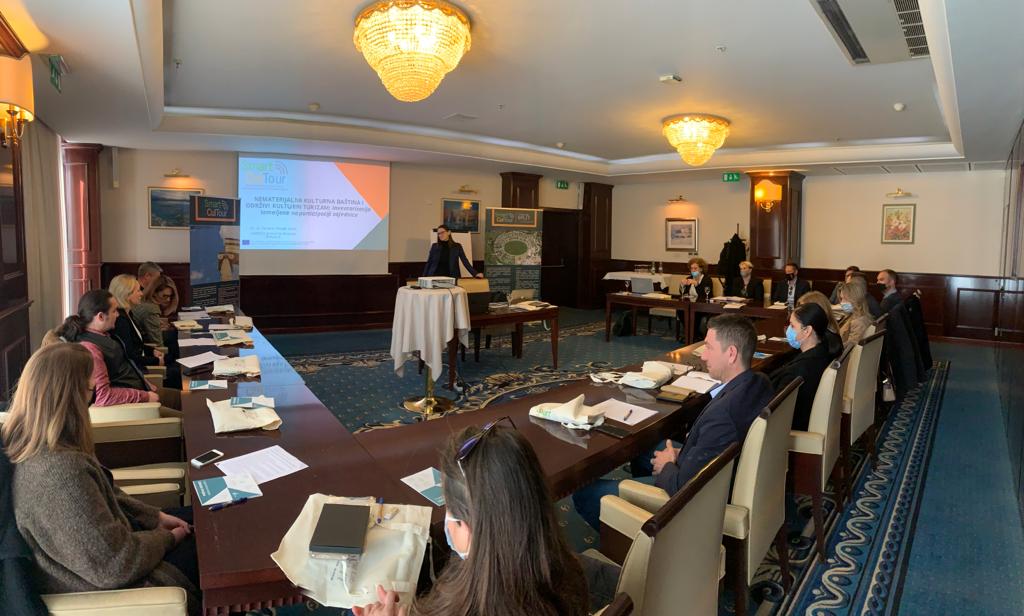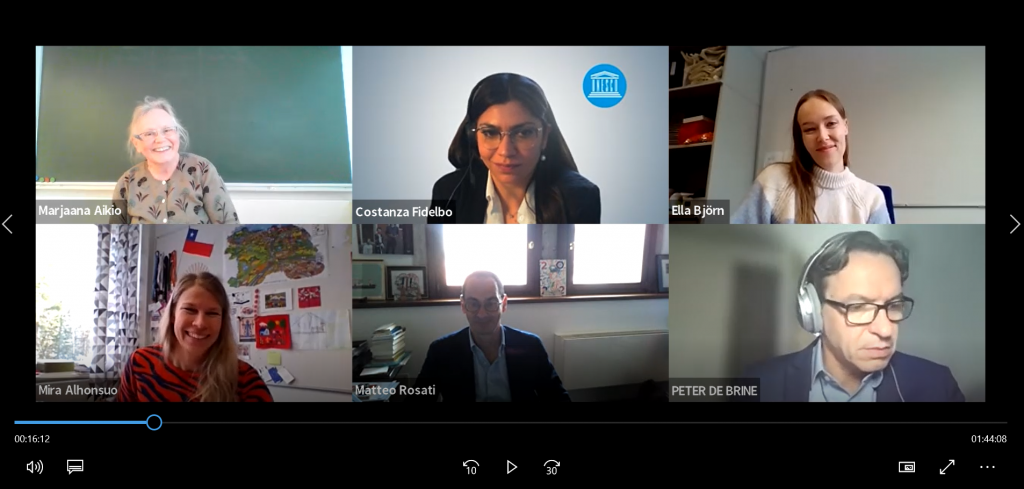As foreseen by its role as leader of WP6, UNESCO has kicked off capacity-building actions in two of the six SmartCulTour Living Labs (LLs): the Metropolitan city of Split and the Municipality of Utsjoki. The subject and programme of the actions were defined in close consultation with the LLs stakeholders, with a co-designing approach.
The Split Living Lab recognized living heritage as one of the resources for strengthening cultural tourism and active community participation. Accordingly, UNESCO and the University of Split (as the LL manager) organized a series of workshops aimed at building the capacities of local stakeholders in strengthening the ICH-tourism synergy, with special focus on “Community-based inventorying and awareness raising”, which were prepared and delivered by the UNESCO-trained facilitator Ms Tamara Nikolic Djeric.
The training programme was organised in a hybrid format and was divided into four parts. The first online theoretical workshop presented the Convention, its ethical principles and methods of participatory inventorying, seeking to answer the question on how to ethically identify and inventory local knowledge for the development of cultural tourism.
During the second in-presence workshop, the Split Living Lab continued the discussion on inventorying with a special focus on community participation. Based on the participants’ inventorying activities, two ICH elements (Sirnica-making and Opanci-making) and two communities (Solin and Sinj) were identified as pilot projects for the development of the awareness raising campaign as second part of the workshop.
The third online meeting offered participants the opportunity to work on messages that they would like to convey through different awareness raising campaigns. The concepts of pride, continuity and intergenerational relations were widely articulated.
On this basis, the pilot project members and Duje Kundić, a Split-based artist and video-maker, met for the fourth workshop. Prior to the field-work, a scenario was developed, and semi-structured interviews undertaken with community members during the first shooting. The connection between the young artist and more experienced members of the local communities were recognized as key to awareness raising. “Relying on the power of intergenerational transmission, we hope that the results of this awareness raising campaign will be evident in the next future”, said the participants.
In the Municipality of Utsjoki, which also features a strong living heritage component mostly linked to the local Sàmi community, Living Lab participants opted for a pilot capacity-building programme on UNESCO’s approach to sustainable cultural tourism destination management, with a focus on how to ensure that the tourism sector contributes to the sustainable safeguarding and promotion of ICH, thereby preventing over commercialization, misappropriation and decontextualization.
During the first online workshop, held on 26 April 2022, Mr Peter Debrine, former coordinator of the World Heritage and Sustainable Tourism programme, delivered two introductory sessions, focusing respectively on “Understanding Tourism at your Destination” and “Communicating with visitors and heritage interpretation”. The presentation focused on UNESCO’s approach to destination management as a way to secure benefits for communities, safeguard their living heritage and enhance its values. For this to be achieved, it is key to invest in storytelling, namely the idea of a destination and its community telling their own story.
The presentation was followed by a participated discussion on the strengths and weaknesses of Utsjoki as a cultural tourism destination. The Sàmi culture was identified as an attractor, even though the issues of misappropriation and misrepresentation were raised by several participants. What emerged from their voices is that the tourism offer is too often tailored on visitors’ expectations and demand, in a way that disregards the local communities’ will. This is the case, for instance, of husky rides and igloos, which are widely requested by visitors although not being part of the Sàmi culture. These frictions should be addressed through an active participation of the local community in policy discussions on how and what kind of tourism should be developed in the region.
Taking the moves from the results of the online workshop, a follow-up session with the Utsjoki Living Lab will be held on 25 May next, focusing on how to develop a strategy for progressive change and add value through products, experiences, and services, as well as on innovative ways to communicate with visitors, including through digital media, marketing and promotion tools.





